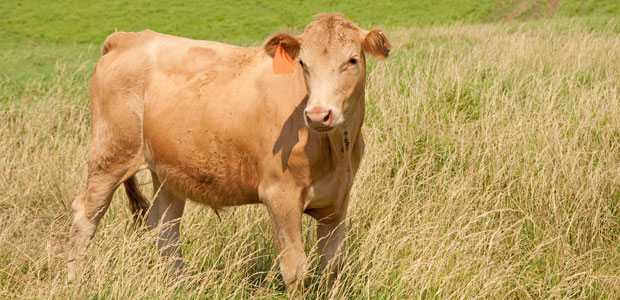Advertisement
Organic Meat
Eating what comes naturally

Most Canadian meat is plentiful and relatively inexpensive. But the bounty and affordability comes at a cost to the environment and your health.
Agribusiness animal husbandry has a large impact on the environment. Intensive farming practices to produce animal feed lead to soil degradation and erosion, requiring heavy reliance on chemical fertilizers. Tons of manure, produced by overconcentration of animals, contribute to contamination of crops, soil, or water. Also, factory farms require huge amounts of energy to run their operations.
Organic meat production is eco-friendlier. Animals graze outdoors, decreasing their reliance on feed. Use of growth hormones and antibiotics are prohibited; therefore, these chemicals don’t leach into the water system. Manure from organically raised animals can be recycled as fertilizer for organic crops, resulting in sustainable agricultural practices.
You are What You Eat
Conventional meat comes from animals crowded into large facilities that are fed corn and grains they wouldn’t naturally eat. They are dosed with growth hormones and antibiotics because overcrowding makes them susceptible to disease. Then they are transported to large slaughterhouses where speed and efficiency take precedence over humane slaughtering practices. While the farms and meat must meet government health standards, some scientists question whether these standards are tough enough.
Certified Canadian organic meat comes from farms and animals subject to strict rules in the Canadian National Standard for Organic Agriculture, verified by private certifying bodies such as the Organic Crop Improvement Agency and Pro-Cert Canada. Growers follow ethical animal husbandry practices that facilitate low stress, promote good health, and prevent disease.
The animals graze on grass that has not been treated with chemical fertilizers, or they are fed high quality organic feed or hay. This, combined with the ban on growth hormones and antibiotics, produces meat less likely to contain pesticide residue or other potentially harmful additives or drugs. Higher levels of grass feed lead to increased levels of conjugated linoleic acid (CLA) and a healthier ratio of omega-6 to omega-3 fatty acids. For meat consumers, this is associated with reduced risk of heart disease, stroke, and cancer. CLA also appears to lower LDL cholesterol and triglyceride levels, reduce body fat and increase lean muscle mass, enhance select immune system responses, and improve the body’s glucose use. Organic meat also has more vitamin E and beta-carotene.
A Warning
As the demand for organic meat and produce rises, authors Michael Pollan and Samuel Fromartz warn that “big organic” is now aping the mass production methods and sins of its competition.
What can you do? If you can’t visit the farms where the animals are raised, speak to the manager where you buy your meat. Ask where they get their meat and how they know the animals are treated well. A few questions may allow you to have your meat and eat it, too–for a healthy body and a clean conscience.




